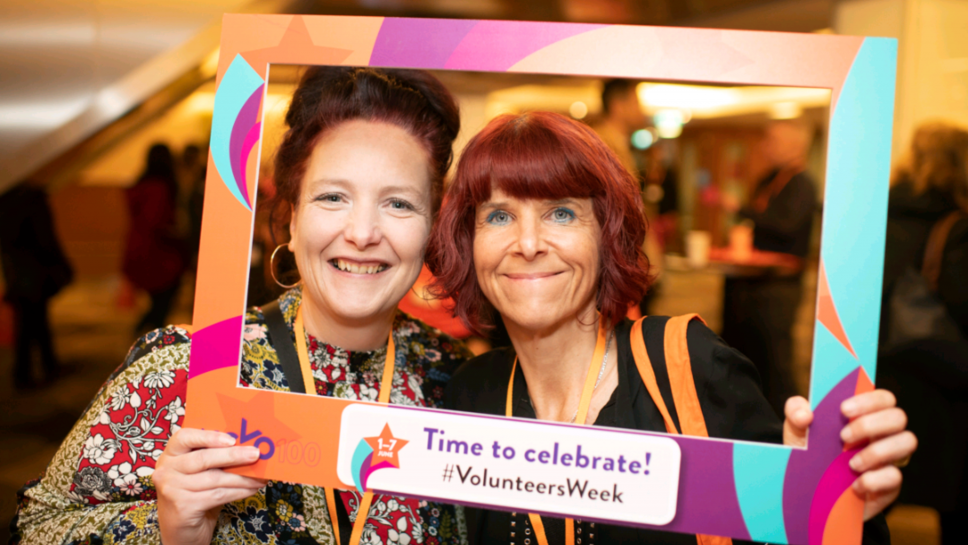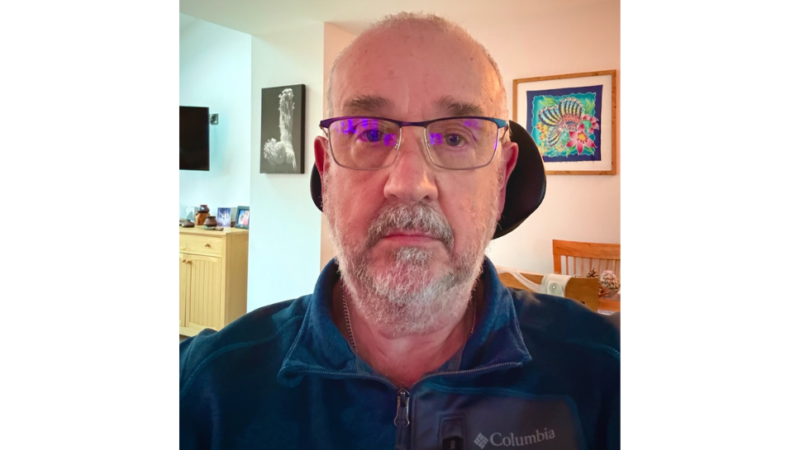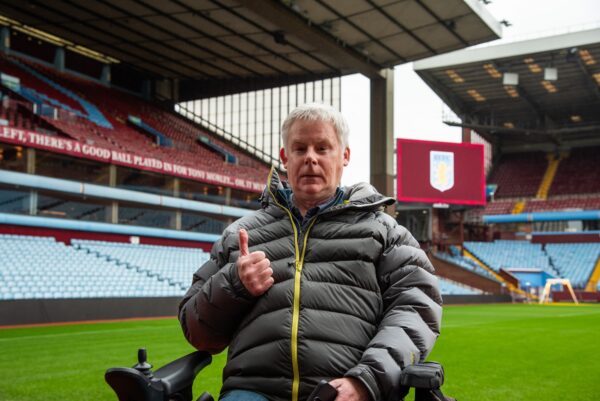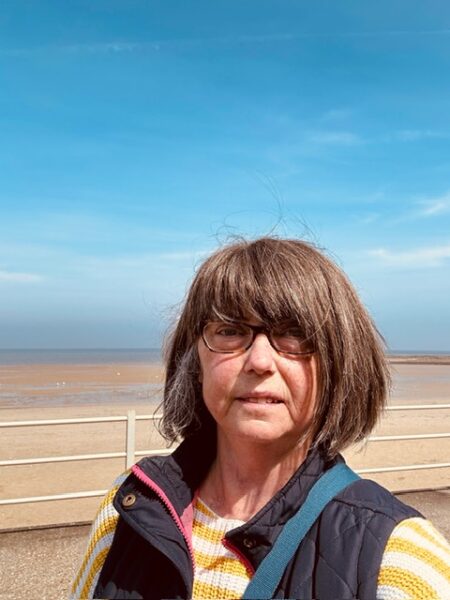Tiffany is used to putting on a smile and brave face, but she admits the reality of living with a muscle wasting condition can be testing. After receiving support from our information, advocacy and support team, Tiffany decided she wanted to give back and become a volunteer so she can help other people living with similar conditions.
Warrior Swan: What its really like living with a muscle wasting condition

A swan is gracious and tough above water, but underneath she paddles 100 miles an hour – unseen. I do this every day. I’m a happy smiling person to people around me, but inside my brain is going like an express train.
Don’t get me wrong I love my life, but I never show anyone around me the truth of my disability. Because that would be admitting how bad it has gotten and I don’t want people treating me differently.
At 10 years old, I sat with my parents at one of my hospital appointments (I spent a lot of time in Great Ormond Street and Poole Hospitals, and still do). My childhood consultant said to us that I’d be in a wheelchair by 20 years of age. Even at age 10, I thought to myself “Absolute rubbish, I’ll prove him wrong”. My parents never treated me like I had a disability, so I owe it to them for giving me strong roots.
That comment fuelled me to keep proving people wrong
I won’t lie it’s a struggle most days, a painful and frustrating one, but I’m still upright with walking aids. Spending so much time in the hospital definitely shaped me to be the person I am. I’m extremely caring and empathetic and have a sixth sense when people need me.
I knew from a young child I’d be a strong person with my disability. A phoenix rising always ahead of it, I controlled it not it controlled me.
Every year my fight gets harder, and the pain gets worse. My independence is now being challenged and this upsets me enormously.
(Lack of) disability awareness
I’ve fallen victim to so much discrimination, and disgusting behaviour. I think to myself, “Don’t they realise how aware I am that I walk differently – I don’t need to be told”.
On top of this, the unsettling thing about having a muscle wasting condition is that hardly anyone knows about them because they are so rare. I’m compared to the nearest muscle wasting condition and I’d never met anyone with it until I was 50 years old and in America.
It’s a scary thought – being alone – and it’s one I’ve always had to live with. My eldest sister sadly passed away from Malignant Hyperthermia. We both have this and Central Core Disease (CCD). There are so many answers about CCD I need. I know about some of the things that are ahead of me in my not-so-far-away future, but I keep it hidden as it frightens the life out of me, let alone others.
As usual, though, I tackle the deterioration head-on and let battle commence. My muscles are wasting but my mind isn’t.
Becoming a peer support volunteer
When I was applying for my Personal Independence Payments (PIP), I was turned down as the Department for Work and Pensions had no idea what my muscle wasting condition meant. I contacted the Information, Advocacy and Support team at Muscular Dystrophy UK (MDUK) to help me with my claim. They were absolutely amazing with the application and guided me throughout.
They were so supportive, and it gave me confidence and strength to win. Although it was a stressful process, I knew MDUK were on my side. They were very professional and caring at the same time.
I’ve always believed that if you receive help then you should give back. And I know how lonely and daunting having a rare muscle wasting condition can be, so it felt right that helping others was the next step.
I wanted to show the MDUK team how much I appreciated them and my way to do that was by becoming a peer support volunteer. I’m extremely positive so felt I could really help others.
“Volunteering makes me feel good in a quiet behind-the-scenes way”
Every couple of months, I arrange a call with a person who has the same condition as me, finding a time suitable for us both. It’s an opportunity to chat with another person who understands what it’s like. They can ask me for information, and we talk through any questions they might have.
I volunteer for two other charities as well. It’s good for the soul and something positive to do. Helping people gives me purpose and makes me feel good in myself. I love it and it’s been a steppingstone to more things in my life. It’s important because disabled people need a voice.
I think volunteering brought me back into the world and set me on a positive path. It makes you more upbeat as you know you’re helping others not just yourself.
If I had to give someone newly diagnosed a piece of advice
I’d say, “Listen to your body. You know it the best.”
I’d also tell them that there are always ways of doing fun things, just in a different way. Surround yourself with positive people and remember there’s so much help you can access from organisations like MDUK.
We have lots of volunteering opportunities you can get involved with – from peer support to fundraising, and our lay research panel. Find out more and join our community of volunteers.


